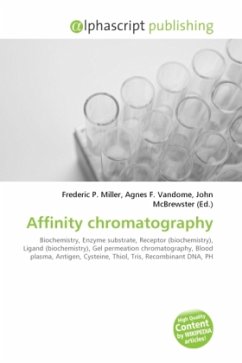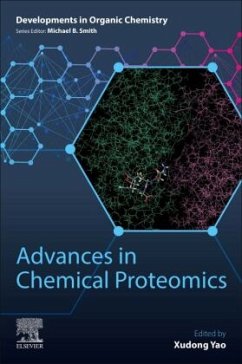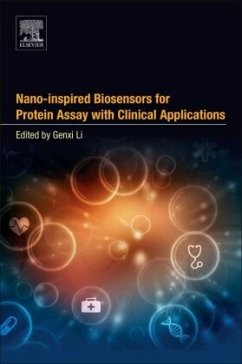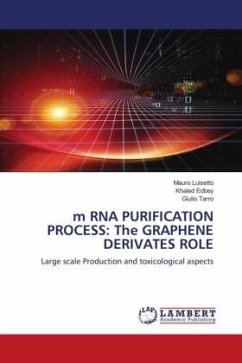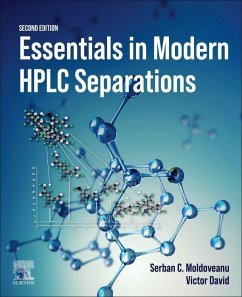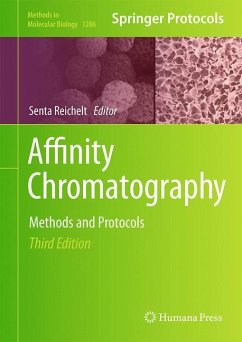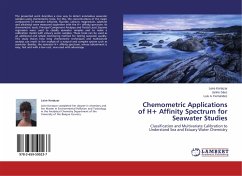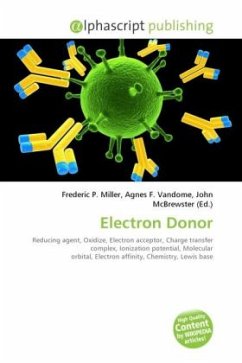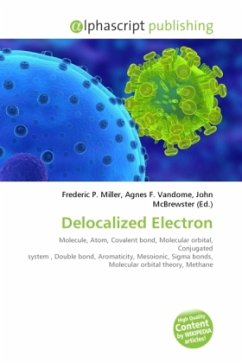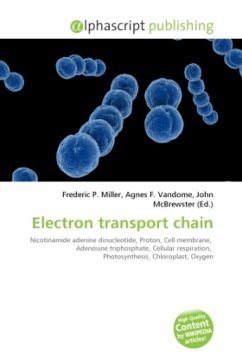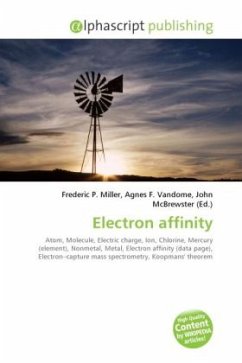
Electron affinity
Versandkostenfrei!
Versandfertig in 6-10 Tagen
30,99 €
inkl. MwSt.

PAYBACK Punkte
15 °P sammeln!
Electron affinity is the measure of the energy change when an electron is added to a neutral atom to form a negative ion., Eea, of an atom or molecule is the amount of energy required to detach an electron from a singly charged negative ion. An equivalent definition is the energy released (Einitial Efinal) when an electron is attached to a neutral atom or molecule. The electron affinities of the noble gases have not been conclusively measured, so they may or may not have slightly negative EAs. Atoms whose anions are more stable than neutral atoms have a greater Eea. Chlorine most strongly attr...
Electron affinity is the measure of the energy change when an electron is added to a neutral atom to form a negative ion., Eea, of an atom or molecule is the amount of energy required to detach an electron from a singly charged negative ion. An equivalent definition is the energy released (Einitial Efinal) when an electron is attached to a neutral atom or molecule. The electron affinities of the noble gases have not been conclusively measured, so they may or may not have slightly negative EAs. Atoms whose anions are more stable than neutral atoms have a greater Eea. Chlorine most strongly attracts extra electrons; mercury most weakly attracts an extra electron. Eea of noble gases are close to 0. Although Eea vary in a chaotic manner across the table, some patterns emerge. Generally, nonmetals have more positive Eea than metals.



